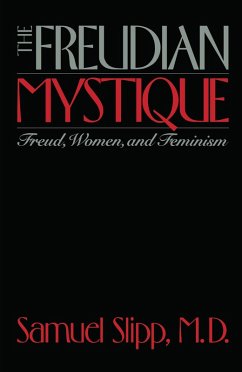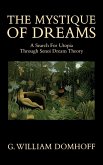"Lucid and convincing...Makes clear that [Freud's] vision was limited both by the social climate in which he worked and the personal experiences he preferred, subconsciously, not to deal with."
-Los Angeles Times
Sigmund Freud was quite arguably one of the most influential thinkers of the twentieth century. Yet, over the last decade, portions of his theories of the mind have suffered remarkably accurate attacks by feminists and even some conservative Freudians. How could this great mind have been so wrong about women?
In The Freudian Mystique, analyst Samuel Slipp offers an explanation of how such a remarkable and revolutionary thinker could achieve only inadequate theories of female development. Tracing the gradual evolution of patriarchy and phallocentrism in Western society, Slipp examines the stereotyped attitudes toward women that were taken for granted in Freud's culture and strongly influenced his thinking on feminine psychology. Of even greater importance was Freud's relationship with his mother, who emotionally abandoned him when he was two years old. Slipp brings the tools of a trained clinician into play as he examines, from an object relations perspective, Freud's own pre-oedipal conflicts, and shows how they influenced Freud's personality as well as the male-centric shape of his theory.
Not limited to only one perspective, The Freudian Mystique analyzes how the entire contextual framework of individual development, history, and culture affected Freud's work in feminine psychology. The book then looks forward, to formulating a modern biopsychosocial framework for female gender development.
-Los Angeles Times
Sigmund Freud was quite arguably one of the most influential thinkers of the twentieth century. Yet, over the last decade, portions of his theories of the mind have suffered remarkably accurate attacks by feminists and even some conservative Freudians. How could this great mind have been so wrong about women?
In The Freudian Mystique, analyst Samuel Slipp offers an explanation of how such a remarkable and revolutionary thinker could achieve only inadequate theories of female development. Tracing the gradual evolution of patriarchy and phallocentrism in Western society, Slipp examines the stereotyped attitudes toward women that were taken for granted in Freud's culture and strongly influenced his thinking on feminine psychology. Of even greater importance was Freud's relationship with his mother, who emotionally abandoned him when he was two years old. Slipp brings the tools of a trained clinician into play as he examines, from an object relations perspective, Freud's own pre-oedipal conflicts, and shows how they influenced Freud's personality as well as the male-centric shape of his theory.
Not limited to only one perspective, The Freudian Mystique analyzes how the entire contextual framework of individual development, history, and culture affected Freud's work in feminine psychology. The book then looks forward, to formulating a modern biopsychosocial framework for female gender development.
Dieser Download kann aus rechtlichen Gründen nur mit Rechnungsadresse in A, D ausgeliefert werden.









